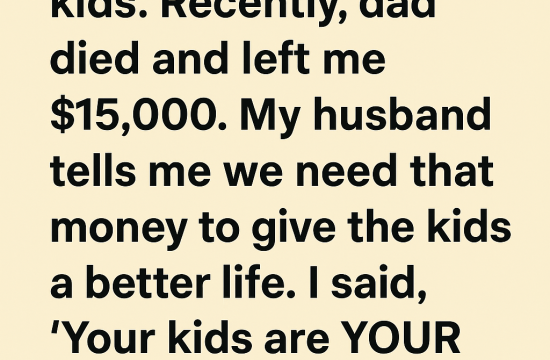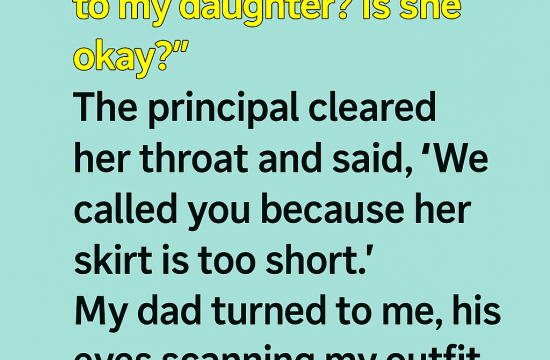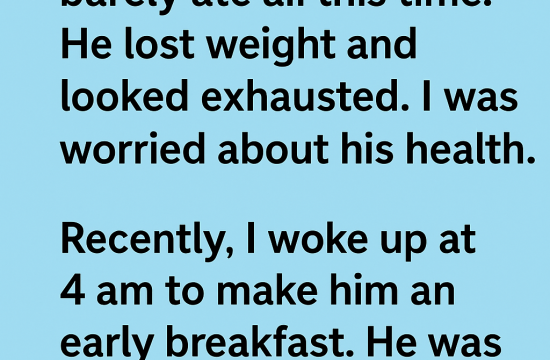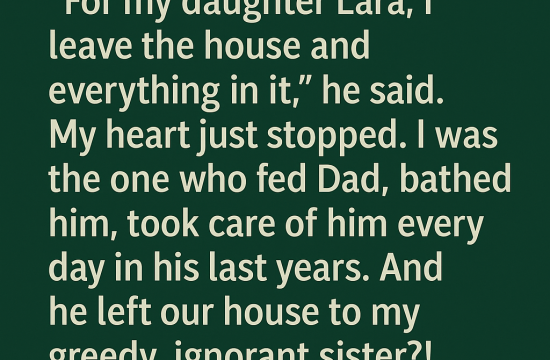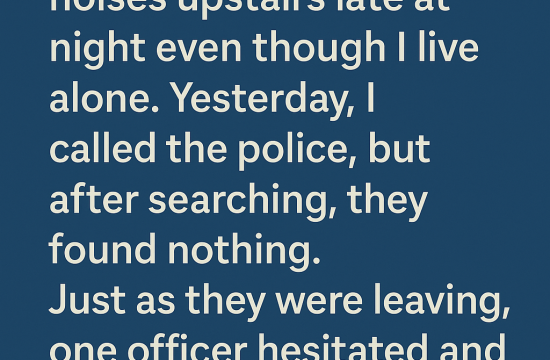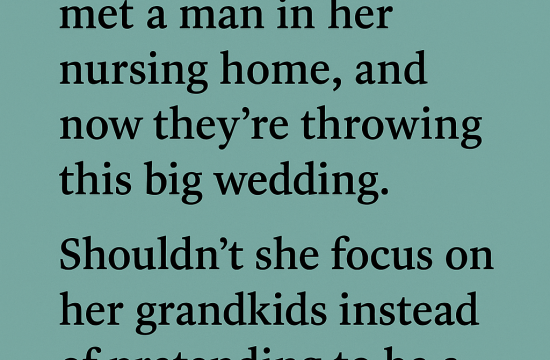Recently, my in-laws began pressuring us relentlessly for a grandchild. My husband and I finally decided to get checked, just to quiet the storm. The results came back: he was infertile. It was painful, but we knew we’d face it together. What I didn’t expect was my mother-in-law’s reaction. She insisted I had faked my results.
Two days later, I walked into the living room to find my husband pale, trembling, clutching his phone like it carried a death sentence.
“She went to the clinic,” he whispered. “She pretended to be you. They gave her the results.”
It felt like my stomach dropped through the floor. My privacy violated. My dignity trampled. Instead of accepting the truth, she crossed every boundary to feed her denial.
“She told me they said you’re fine,” he continued, his voice hollow. “So now she thinks I’m the problem.”
The next morning, I called the clinic myself. They confirmed it—she had tricked the staff, passing as me. I demanded they document the breach and strengthen security. Meanwhile, Tomas confronted his mother. He returned exhausted, his voice flat: “She still says you made the doctors lie. She wants us to do the test again. With her there.”
That was the breaking point. I told him no, and he didn’t fight me. For the first time, he chose me over her.
Weeks of silence followed. Tomas texted her, but she ignored him. I saw how it pained him—not just infertility, but the unraveling of the bond with his mother. We turned to counseling, trying to process grief, betrayal, and the sudden uncertainty of our future.
Then one day, Tomas asked softly, “Would you ever consider adoption?”
“I would,” I smiled. “But let’s take our time.”
And we did. We rebuilt our life together, free from suffocating expectations. Until an unexpected message changed everything.
A woman named Karina reached out on Facebook: “Hi. I believe we might be sisters.”
The truth unraveled quickly. A DNA test had revealed her biological father was Tomas’ late father. Karina had grown up without knowing her dad—while we had lived under the illusion of a faithful family. Meeting her confirmed everything. She was kind, overwhelmed, and carrying her own secret: she had a six-year-old son named Luca.
Tomas and I stood stunned, but something shifted. “It’s strange,” he murmured later, “but it feels like part of my dad lives on in him.”
We went to Luca’s birthday party. Balloons, laughter, cake—ordinary joy. Tomas’ eyes softened watching the boy. On the drive home, he said, “I think I want to be in his life. If Karina’s okay with it.”
Karina wept when he asked to be an uncle. For the first time in months, Tomas felt whole.
But then his mother found out. Furious, she denied everything—until she came to our house one night, broken.
“I knew,” she confessed, trembling. “I found out years ago. I told myself it was just an affair, that it ended. I didn’t know… a child came from it. Blaming you was easier than facing the truth about him… and me.”
Her words stunned us. For the first time, she admitted her cruelty was a shield against her own shame.
That conversation didn’t fix everything, but it cracked her walls. Slowly, she softened—especially toward Luca. Maybe it was guilt. Maybe it was love. She began bringing him little toys, asking about his school, watching him with tears in her eyes.
One afternoon, as we watched Luca play, Tomas whispered to me, “I used to think being a dad was about biology. But it’s not.”
“It’s about showing up,” I replied.
And he did. Every scraped knee, every soccer game, every bedtime story. In giving love to Luca, Tomas healed a wound he never thought could mend.
We never adopted. Life simply unfolded differently, filling itself with unexpected family and second chances.
Looking back, I don’t regret the heartbreak or the betrayal. Because they led us here—to something broken but rebuilt, imperfect but real.
Sometimes, what looks like an ending is just the start of a different kind of story.




